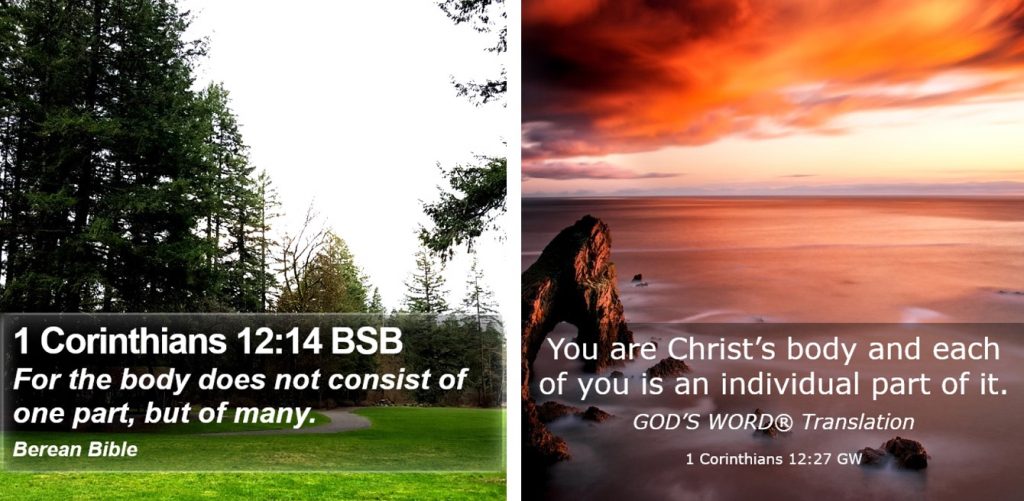“Go therefore and make disciples of all the nations…teaching them to observe all that I commanded you; and lo, I am with you always, even to the end of the age” (Matthew 28:19-20, NASB).
——————–
Contents:
1) Working Together (Doy Moyer)
2) Guilt is a Good Thing (Bryan Gibson)
——————–

-1-
Working Together
Doy Moyer
The people of God are characterized by work. This is not a drudgery but a blessing demonstrating God’s fellowship with His people and His people with one another. Salvation is by grace through faith (Ephesians 2:8-9), yet God’s grace teaches us to “renounce ungodliness and worldly passions, and to live self-controlled, upright, and godly lives in the present age” as we await the coming of Jesus (Titus 2:11-14). This means that we are to be “zealous for good works” because “we are his workmanship, created in Christ Jesus for good works, which God prepared beforehand, that we should walk in them” (Ephesians 2:10). We are to be people who act, not simply hear (James 1:22).
One of the beautiful aspects of being God’s people is that we are not alone. We are a body of various members who function in unity with each other. We share a special relationship, a fellowship as brothers and sisters in Christ. One of the reasons Paul thanked God for the Philippian Christians is that they had a “partnership [fellowship] in the gospel from the first day until now” (Philippians 1:5). They partook of the grace of God together, and this created a special bond for them.
When Paul writes about his coworkers in the gospel, he does so with obvious and deep affection. One of his requests of the Philippian church was that they help certain women (Euodia and Syntyche) “who have labored side by side with me in the gospel together with Clement and the rest of my fellow workers, whose names are in the book of life” (Philippians 4:3). He dedicates a section of Romans to recognizing those with whom he had worked and who had been encouraging to him. He wrote of Phoebe as a servant who had been his patron. She was to be welcomed in the Lord and helped however needed (Romans 16:1-2). He wrote of many others with whom he labored, who had risked their lives for each other and worked hard on behalf of churches for the Lord. Read Romans 16. It is encouraging to see such love expressed, and it gives us something to imitate in our work together. In our efforts to be disciples like first-century Christians, this kind of fellowship should be sought after and followed.
God’s people should still be characterized by the affection and love seen in Paul’s notes about his coworkers. Unfortunately, there have always been detractors. People like “Diotrephes, who likes to put himself first,” will hurt the cause (III John 9). The Galatians were warned about biting, devouring, and consuming one another (Galatians 5:15). Through love, we are to serve one another (Galatians 5:13), but it is easy to drop our guard and become selfish. This ruins relationships and chokes out the beautiful fellowship of God’s people. This is one reason those who cause divisions are to be marked and avoided, “For such persons do not serve our Lord Christ, but their own appetites…” (Romans 16:17-18).
The work of God’s people together needs to be bound in love and unity. Jesus instructed His disciples to “love one another: just as I have loved you, you also are to love one another.” The importance of this follows: “By this all people will know that you are my disciples, if you have love for one another” (John 13:34-35). Love, in turn, will result in unity. To stand firm in one spirit and strive together for the faith of the gospel requires “being of the same mind, having the same love, being in full accord and of one mind” (Philippians 2:2). Unity requires not only love but humility, as there is nothing to be done through selfish ambition or conceit, “but in humility count others more significant than yourselves” (Philippians 2:3). Jesus is the supreme example of this mindset, who demonstrated love in the greatest of ways and acted in humility on our behalf by going to the cross (Philippians 2:5-7). “Have this mind among yourselves, which is yours in Christ Jesus…” (Philippians 2:5).
Work, love, unity, humility, and fellowship all go together. There should not be one without the other. These all help us form a beautiful bond in the Lord as we seek to “attain to the unity of the faith and of the knowledge of the Son of God, to mature manhood, to the measure of the stature of the fullness of Christ” (Ephesians 4:13). Note further how Paul makes these connections: “speaking the truth in love, we are to grow up in every way into him who is the head, into Christ, from whom the whole body, joined and held together by every joint with which it is equipped, when each part is working properly, makes the body grow so that it builds itself up in love” (Ephesians 4:15-16). A body functions well when the members act with love, unity, and humility.
May God help us to work together in a way that glorifies Him!
— Via Articles from the La Vista church of Christ, January 10, 2025
——————–

-2-
Guilt is a Good Thing
Bryan Gibson
Seems like maybe we’ve forgotten that. “I know what I did was wrong, but…(insert your favorite excuse).” We don’t like to feel guilty, and we don’t want anyone else to feel that way, either. We’re reluctant to point out their sin, or perhaps we make excuses for them, too.
It’s the way of society today, but it’s not the Lord’s way. He wants us to feel guilty when we’ve done wrong, assume responsibility for our actions, and refuse to blame anyone or anything else. A few Biblical examples will help illustrate the Lord’s approach. Nathan, the prophet, was not about to let King David off the hook—“YOU are the man…why have YOU despised the commandment of the Lord, to do evil in his sight?” (2 Samuel 12:7, 9). Peter, the apostle, did likewise to his audience in Acts 2—“YOU have taken by lawless hands, have crucified, and put to death” (v. 23)—speaking, of course, about what they had done to Jesus. And finally, Jesus said this to Saul when He appeared to him on the road to Damascus: “I am Jesus, whom YOU are persecuting” (Acts 9:5). Saul was guilty, and the Lord wanted him to know it. Just a few of the many examples found throughout the Bible.
Why is it so important to the Lord for us to feel the burden of guilt? Using the Scriptures, we can find at least three reasons.
First, only then will we see the need to repent, to change our ways. The recognition of guilt before God, or “godly sorrow” is a good thing, because it “produces repentance leading to salvation” (2 Corinthians 7:10). When we’re ashamed of what we’ve done, we don’t want to do it anymore.
Secondly, it’s only when we feel the burden of guilt that we seek forgiveness (Luke 5:31-32). That’s exactly what happened in the examples cited above—they felt the burden of guilt and sought forgiveness from the Lord. David certainly felt this immense burden: “There is no soundness in my flesh because of Your anger, nor any health in my bones because of my sin. For my iniquities have gone over my head; like a heavy burden they are too heavy for me” (Psalms 38:3-4). It’s this burden of guilt that makes us say, “Wash me thoroughly from my iniquity, and cleanse me from my sin” (Psalms 51:2).
And the third reason? It’s when we feel guilt the strongest we appreciate forgiveness the most. The sinful woman in Luke 7 loved Jesus “much,” because only He could forgive her “many sins” (Luke 7:36-50). Paul characterized himself as the “chief of sinners” (1 Timothy 1:15), so it’s little wonder that when he was forgiven, he “labored more abundantly than they all.” He wanted to do all he could for the Lord, because he was so thankful for His grace (1 Corinthians 15:9-10).
So you see, guilt IS a good thing—(1) if it makes us repent, (2) if it drives us to seek forgiveness, and (3) if it deepens our appreciation for the grace of God.
— Via Plain Words from God’s Word, November 7, 2024
——————–
The Steps That Lead to Eternal Salvation
1) Hear the gospel — for that is how faith comes (Rom. 10:17; John 20:30-31).
2) Believe in the deity of Jesus Christ, the Son of God (John 8:24; John 3:18).
3) Repent of sins. For every accountable person has sinned (Romans 3:23; Romans 3:10), which causes one to be spiritually dead (Ephesians 2:1) and separated from God (Isaiah 59:1-2; Romans 6:23). Therefore, repentance of sin is necessary (Luke 13:5; Acts 17:30). For whether the sin seems great or small, there will still be the same penalty for either (Matt. 12:36-37; 2 Cor. 5:10) — and even for a lie (Rev. 21:8).
4) Confess faith in Christ (Rom. 10:9-10; Acts 8:36-38).
5) Be baptized in water for the remission of sins (Mark 16:16; Acts 2:38; 22:16; 1 Pet. 3:21). This is the final step that puts one into Christ (Gal. 3:26-27). For from that baptism, one is then raised as a new creature (2 Cor. 5:17), having all sins forgiven and beginning a new life as a Christian (Rom. 6:3-4). For the one being baptized does so “through faith in the working of God” (Col. 2:12). In other words, believing that God will keep His word and forgive after one submits to these necessary steps. And now as a Christian, we then need to…
6) Continue in the faith by living for the Lord; for, if not, salvation can be lost (Matt. 24:13; Heb. 10:36-39; Rev. 2:10; 2 Pet. 2:20-22).
——————–
Tebeau Street
CHURCH OF CHRIST
1402 Tebeau Street, Waycross, GA 31501
Sunday: 9 a.m. Bible Classes and 10 a.m. Worship Service
Wednesday (all but the first): 7 p.m. Bible Classes
First Wednesday of the month: 7 p.m. Congregational Song Service (about 45 minutes of singing, followed by a short talk)
evangelist/editor: Tom Edwards (912) 281-9917
Tom@ThomasTEdwards.com
https://thomastedwards.com/go/all.htm (This is a link to the older version of the Gospel Observer website, but with bulletins going back to March 4, 1990.)